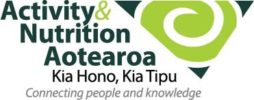13 Dec New Research Released on Nutrition of Kiwi Infants
New University of Auckland research has examined whether Kiwi families are meeting national food and nutrition guidelines when feeding their babies.
The research, from the university’s Centre for Longitudinal Research at the School of Population Health, looked at data from more than 6,500 of the children participating in the Growing Up in New Zealand study.
Dr Sarah Gerritsen, one of the report’s authors, says the research used 13 ‘infant feeding indicators’ to see how closely the Ministry of Health guidelines were followed.
“We were interested in factors such as whether the children were breastfed and for how long, whether solid foods were introduced at around six months old and if fruit and vegetables were eaten twice or more daily by the age of nine months.’
“We know that nutrition in those first 12 months can affect a baby’s cognitive, social and physical development,” Dr Gerritsen says. “So it’s important to understand what’s happening and where families may need more support or information about how best to nourish their very young children.”
The project, designed in collaboration with the Ministry of Health, found that some of the guidelines had high adherence.
“By nine months old 80 percent or more of the children were eating an iron-rich food daily and were not having any extra sugar or salt added to their meals,” Dr Gerritsen says.
However, other guidelines were less closely followed with more than 60 percent of infants not eating fruit and vegetables twice or more daily at nine months.
“It’s concerning that more than half had also tried foods high in sugar, salt and fat such as lollies, chips and chocolate, and more than 40 percent had tried sugary drinks, including cordial and juice.
“These foods can add excess energy to infants’ diets while adding little nutritional value. But more than that, they can establish future taste preferences that make it difficult for children to choose healthy options later on.”
Dr Gerritsen says the research findings show the need to continue promoting the importance of breastfeeding, introducing solids when baby is ready (around six months) and making a variety of fruits and vegetables available to children.
She says water and breast milk or suitable formula are the recommended drinks for children younger than one. Sugary beverages such as juice or fizzy drinks shouldn’t be offered at this age.
The research findings will be considered during the Ministry of Health’s 2019 planned review of the Food and Nutrition Guidelines for Healthy Infants and Toddlers (Aged 0-2 years).
The research was funded by the Ministry of Social Development’s Children and Families Research Fund. Funded projects use data from the Growing Up in New Zealand longitudinal study to conduct research that informs government policy development.

